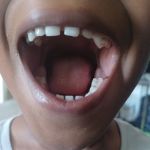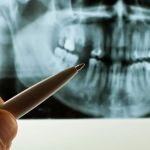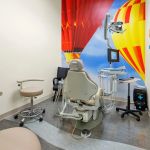Should You Use a Manual or Electric Toothbrush? The Ultimate Guide to Better Oral Care
- 1. Overview: Manual vs. Electric Toothbrush
- 2. Pros and Cons of Manual Toothbrushes
- 3. Pros and Cons of Electric Toothbrushes
- 4. Which One Is More Effective for Cleaning?
- 5. Personal Experience: Choosing the Right Toothbrush
- 6. How to Choose the Right Toothbrush for You
Choosing between a manual and an electric toothbrush is one of the most common questions in the world of oral hygiene. Both options are designed to clean your teeth effectively, but there are key differences that could influence your choice. In this article, we’ll dive into the pros and cons of both toothbrushes and provide insights to help you make an informed decision about which one is best for your oral care routine.
Pros and Cons of Manual Toothbrushes
Manual toothbrushes have been the go-to choice for centuries. They are simple, affordable, and easy to use. However, like anything, they have their advantages and drawbacks.
Pros:
- Affordable: Manual toothbrushes are generally less expensive, making them a budget-friendly option.
- Portable: They are lightweight and compact, making them perfect for travel.
- Easy to Control: Some people prefer the manual control they have over brushing pressure and technique.
Cons:
- Less Effective Cleaning: Manual brushing requires more effort and technique to be effective. People often miss areas of their teeth, leading to plaque buildup.
- Not Ideal for Everyone: Those with limited mobility or dexterity may struggle with the proper brushing motion.
Pros and Cons of Electric Toothbrushes
Electric toothbrushes have become incredibly popular in recent years, and for good reason. They offer a more automated approach to brushing that can deliver superior results.
Pros:
- More Effective Cleaning: The oscillating or vibrating brush head of electric toothbrushes helps clean teeth more thoroughly and removes more plaque.
- Built-in Timers: Many electric toothbrushes come with timers to ensure you brush for the recommended two minutes.
- Less Effort Required: Electric toothbrushes do most of the work for you, making them ideal for people with limited dexterity or those who want a more effortless brushing experience.
Cons:
- More Expensive: Electric toothbrushes are typically more expensive upfront, and you also have to replace brush heads periodically.
- Needs Charging: Electric toothbrushes require regular charging, which may not be convenient for everyone.
Which One Is More Effective for Cleaning?
When it comes to cleaning effectiveness, electric toothbrushes have a clear advantage. Studies have shown that electric toothbrushes can remove more plaque and reduce gum inflammation compared to manual toothbrushes. The rotating or vibrating action of the brush head ensures that more areas of your teeth are covered in less time. However, this doesn't mean that manual toothbrushes can't clean effectively—they just require a bit more effort and technique from the user.
In the end, the best toothbrush for you depends on your individual needs and preferences. If you find manual brushing effective and you’re comfortable with it, you might not need to switch. But if you want a more convenient and efficient option, an electric toothbrush may be the way to go.
Personal Experience: Choosing the Right Toothbrush
In my experience, switching to an electric toothbrush was a game-changer. After years of using a manual toothbrush, I found that the electric toothbrush made my mouth feel cleaner and fresher. The built-in timer helped me stay on track, and I noticed less plaque buildup after just a few weeks of use. For people who struggle to maintain consistent brushing habits or who have busy lives, an electric toothbrush offers convenience and effectiveness.
However, it’s important to note that both types of toothbrushes can be effective as long as you’re brushing properly. If you're diligent about brushing for two minutes, flossing regularly, and visiting your dentist for cleanings, either option will serve you well.
How to Choose the Right Toothbrush for You
When selecting a toothbrush, there are a few factors to keep in mind:
- Budget: Consider how much you're willing to spend. Manual toothbrushes are cost-effective, while electric toothbrushes are more expensive but offer advanced features.
- Personal Preferences: Some people prefer the simplicity of a manual toothbrush, while others appreciate the ease and power of an electric model.
- Oral Health Needs: If you have specific oral health concerns, like gum disease or difficulty brushing effectively, an electric toothbrush may be the better choice.
For more tips on choosing the best toothbrush and to explore high-quality options, visit Dentistry Toothtruth for more information and recommendations.







 Catonfield Dental4.0 (561 review)
Catonfield Dental4.0 (561 review) Jill Sonner DDS4.0 (29 review)
Jill Sonner DDS4.0 (29 review) South Bay Children's Health Center5.0 (106 review)
South Bay Children's Health Center5.0 (106 review) Fox Valley Dental Care, LLC4.0 (21 review)
Fox Valley Dental Care, LLC4.0 (21 review) Hamner Dental Group and Orthodontics4.0 (257 review)
Hamner Dental Group and Orthodontics4.0 (257 review) Lake Lanier Smiles4.0 (684 review)
Lake Lanier Smiles4.0 (684 review) The Importance of Oral Health Education During Pregnancy for a Healthy Pregnancy
The Importance of Oral Health Education During Pregnancy for a Healthy Pregnancy Best Tips for Brushing Your Teeth Properly for Healthy Gums: Essential Techniques for Oral Health
Best Tips for Brushing Your Teeth Properly for Healthy Gums: Essential Techniques for Oral Health Why Skipping Dental Checkups Can Lead to Bigger Oral Health Problems
Why Skipping Dental Checkups Can Lead to Bigger Oral Health Problems Advantages of Porcelain Dental Restorations
Advantages of Porcelain Dental Restorations How Can Diabetes Cause Tooth and Gum Problems? Preventing and Managing Oral Health Issues
How Can Diabetes Cause Tooth and Gum Problems? Preventing and Managing Oral Health Issues Healthy Habits for Promoting Good Oral Health and Hygiene: Tips for a Healthy Smile
Healthy Habits for Promoting Good Oral Health and Hygiene: Tips for a Healthy Smile